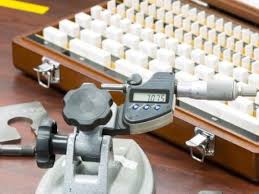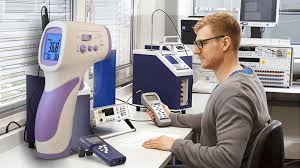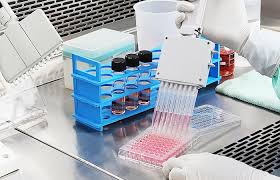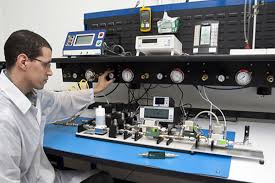Third-party inspection for food plays a crucial role in ensuring the safety and quality of the products that reach consumers. In this article, we will explore the significance of third-party inspection in improving food safety and the various ways in which it can be implemented to enhance overall product quality. With the increasing concerns about food safety and the demand for transparent and reliable inspection processes, third-party inspection has become an essential component in the food industry. We will delve into the benefits of third-party inspection and examine how it can help to mitigate risks, maintain compliance with regulations, and ultimately build trust with consumers.
Third-party inspection services can play a crucial role in improving food safety by providing independent and unbiased assessments of food production and handling processes. These inspections can help identify potential risks and areas for improvement, leading to better compliance with food safety regulations and standards. Third-party inspectors are often highly trained and experienced in food safety protocols, allowing them to thoroughly evaluate food production facilities and processes. They can provide valuable insights and recommendations for mitigating potential hazards and ensuring that food products meet quality and safety requirements. By engaging in third-party inspections, food businesses can demonstrate their commitment to ensuring the safety and quality of their products. This can help to build trust with consumers and regulatory authorities, while also reducing the risk of food safety incidents and recalls. Overall, third-party inspection services serve as an important tool for enhancing food safety practices and promoting consumer confidence in the food supply chain.
Third-party inspections involve independent organizations or individuals conducting assessments of food production and handling processes. These inspections are critical for identifying potential risks and areas for improvement, assisting in better compliance with food safety regulations and standards. Third-party inspectors are typically highly trained in food safety protocols and can provide valuable insights and recommendations for ensuring that food products meet quality and safety requirements. Engaging in third-party inspections demonstrates a commitment to ensuring the safety and quality of food products, helping to build trust with consumers and regulatory authorities and reduce the risk of food safety incidents and recalls. Such inspections are an important tool for enhancing food safety practices and promoting consumer confidence in the food supply chain.
The Importance of Third-Party Inspection for Food Safety
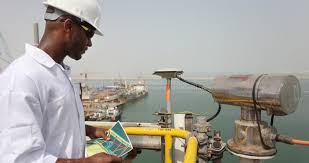
Third-party inspection for food safety is crucial to ensure that food products meet the necessary quality and safety regulations. These inspections are conducted by independent, accredited organizations that are not affiliated with the food manufacturer or supplier. They provide an unbiased assessment of the production processes, handling, and storage of the food products to ensure they meet the required standards. Third-party inspections help to identify and mitigate potential risks in the food supply chain, such as contamination, adulteration, and improper handling. By having an independent party verify the safety and quality of the food products, consumers can have greater confidence in the products they are purchasing and consuming. In addition, third-party inspections can also help food companies demonstrate their commitment to food safety and quality to regulators, customers, and stakeholders. It can serve as a valuable tool for maintaining compliance with food safety regulations and industry standards. Overall, the importance of third-party inspection for food safety cannot be overstated. It plays a critical role in ensuring the safety and quality of food products, protecting public health, and maintaining consumer trust in the food supply.
Understanding the Role of Third-Party Inspection in Food Quality

Third-party inspection in food quality involves the independent assessment of food products and their production processes by a company not directly involved in the production, distribution, or sale of those products. This ensures that the food meets all quality and safety standards set by regulatory authorities and industry best practices. Third-party inspection helps to instill consumer confidence in the safety and quality of the food they purchase. It also provides an objective evaluation of a company's food production processes, helping to identify and address any potential issues before they become larger problems. By utilizing third-party inspection services, food companies can demonstrate their commitment to providing safe and high-quality products to their customers. Additionally, third-party inspections can help companies meet the requirements of international trade and access new markets by ensuring their products comply with different countries' regulations and standards. Overall, third-party inspection plays a crucial role in ensuring the safety and quality of food products.
How Third-Party Inspection Certifications Benefit Food Industry

Third-party inspection certifications benefit the food industry by providing a level of assurance to consumers that the food products they are purchasing have been rigorously tested and inspected for quality and safety. These certifications help to build trust between the food industry and consumers, as well as between different businesses within the industry. Additionally, third-party inspection certifications can help food companies demonstrate compliance with regulatory requirements and industry standards. This can be especially important when exporting food products to different countries, as many countries have their own regulations and standards that must be met. Furthermore, third-party inspection certifications can help food companies identify and address any potential risks or issues in their production processes, ultimately leading to improved food safety and quality. This can also lead to cost savings by reducing the likelihood of recalls or other costly incidents. Overall, third-party inspection certifications play a crucial role in ensuring the safety and quality of food products, building consumer trust, and facilitating compliance with regulations and standards in the food industry.
Choosing the Right Third-Party Inspection Service for Food Businesses
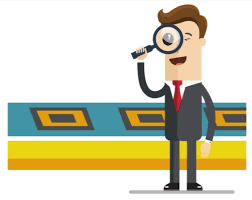
When choosing the right third-party inspection service for a food business, it's important to consider several factors. Look for a service with experience and expertise in the food industry, as well as a strong reputation for accuracy and reliability. It's also crucial to ensure that the inspection service complies with relevant industry regulations and standards. Additionally, consider the cost of the service and its availability to conduct inspections at your facility. Finally, it's important to choose a service that understands the specific needs and challenges of your food business and can provide tailored inspection solutions.
Advantages of Third-Party Inspection for Ensuring Food Compliance
One advantage of third-party inspection for ensuring food compliance is that it provides an unbiased assessment of the food product or manufacturing process. This impartial evaluation helps to ensure that the food meets all regulatory and safety standards without any potential conflicts of interest. Another advantage is that third-party inspection can help companies maintain their reputation and avoid potential recalls or penalties. By identifying and addressing any compliance issues early on, companies can prevent costly mistakes and maintain consumer trust in their products. Additionally, third-party inspection can provide expertise and specialized knowledge in food safety regulations and best practices. This can be particularly beneficial for companies that may not have the resources or expertise to thoroughly assess their food compliance on their own. Overall, third-party inspection can help companies ensure that their food products meet all necessary standards and regulations, ultimately leading to safer and higher quality products for consumers.
Implementing Third-Party Inspection Protocols for Food Production
third party inspection
Implementing third-party inspection protocols for food production involves bringing in an independent organization to assess and verify the safety and quality of the food products being manufactured. This process typically involves employing a qualified third-party inspection agency to conduct regular inspections and audits of the facility, processes, and products to ensure compliance with relevant regulations and standards. The inspection protocol may include checks for hygiene, sanitation, ingredient quality, labeling accuracy, and overall production practices. Implementing these third-party inspection protocols can provide an extra level of assurance to both consumers and regulatory authorities that the food products are being manufactured in a safe and responsible manner. Additionally, it can help food producers identify areas for improvement and maintain transparency and accountability in their operations.
Ensuring Consumer Confidence through Third-Party Inspection for Food
Third-party inspection for food involves having an independent organization or agency assess the quality, safety, and compliance of food products before they reach the consumer. This process helps to ensure that the food is safe, meets regulatory standards, and is of high quality. By having a neutral third-party conduct these inspections, consumer confidence in the safety and quality of the food is increased. Third-party inspection can cover various aspects such as ingredient sourcing, production processes, packaging, and labeling, providing a comprehensive assessment of the entire supply chain. This transparency and accountability are crucial in maintaining consumer trust in the food industry.
The Future of Third-Party Inspection in the Food Industry
The future of third-party inspection in the food industry is expected to involve more advanced technology and automation. This includes the use of sensors, drones, and artificial intelligence to monitor food safety and quality throughout the production process. Additionally, there will be an increased focus on sustainability and transparency within the supply chain, as consumers become more concerned about the source and production of their food. Third-party inspection will play a crucial role in ensuring that these standards are met and maintained.Overall, the future of third-party inspection in the food industry is likely to involve a combination of advanced technology, increased focus on sustainability, and a commitment to transparency and consumer trust.
